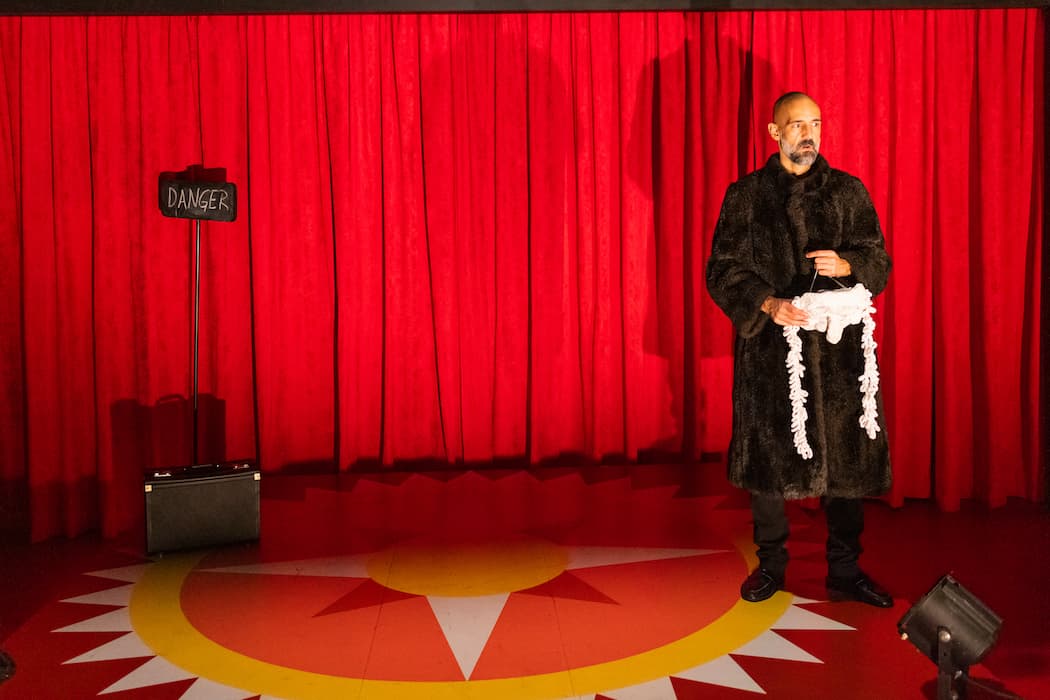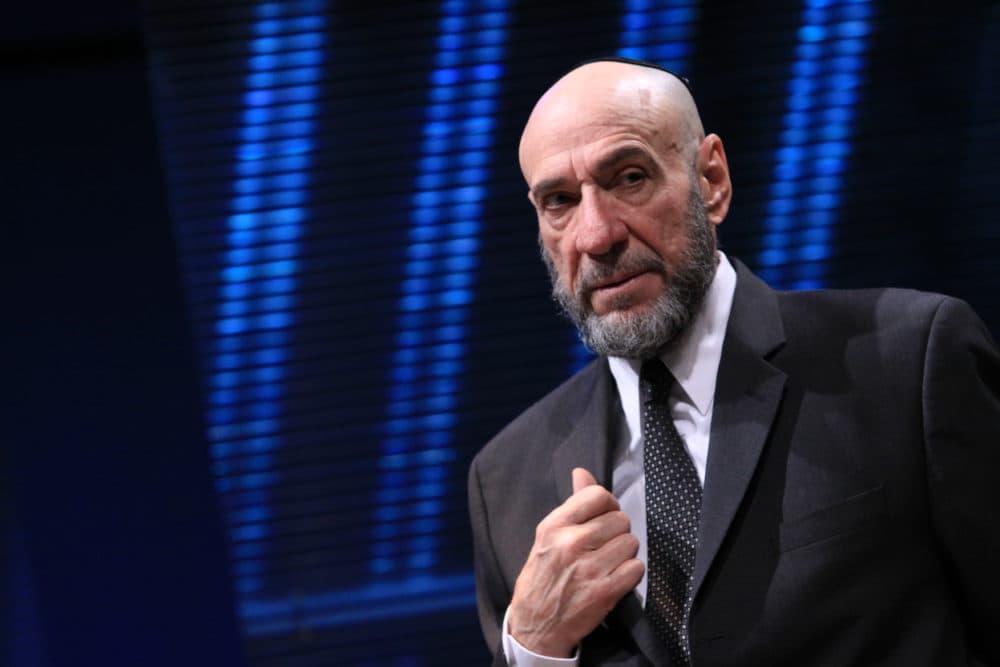Advertisement
Artists respond to 'The Merchant of Venice' controversy

Critics, actors and playwrights have recently called into question whether non-Jewish actors can play Jewish characters. Playwright Edward Einhorn specifically called into question the casting of John Douglas Thompson, a Black non-Jewish actor, in the recent production of "The Merchant of Venice." WBUR critic-at-large Ed Siegel dives into the debate in his essay, "Should non-Jews play Jewish Characters?" He posed the question to Thompson and other actors, local artists and arts administrators. Here are their responses:
John Douglas Thompson | Shylock in the current New York and Washington, D.C. production: “I realize that the idea of Shylock being nonwhite can be a challenging prospect to hold Blackness and Jewishness together. It’s challenging, which is all the more reason I should do it. Shakespeare may have leaned into the anti-Semitism of his time, but he created one of his most sympathetic characters. There can be a female Shylock, a disabled Shylock, an LGBTQ Shylock. Playing Shylock should not be proscribed in any way, shape or form.”
Nael Nacer | Shylock in an Actors’ Shakespeare Project production in 2021: “I think this discussion is an important one, and I can really only speak about my own experience playing Shylock. I will say that as a non-Jewish BIPOC artist my impulse has been to keep my voice out of the mix and to listen and learn, but I confess that I wrestled with this question during ‘Merchant of Venice.’ Our production was ferociously centered on the violence of antisemitism and how this play has been used as a tool of persecution against Jews. Igor [Golyak, the director, who is Jewish] and I spoke at length about my casting, but despite his support I never lost my discomfort. I kept it close, accepted it as best I could, and let it live at the center of my work. In playing Shylock I drew upon many painful instances of racist aggression I've been victim to over the years, as well as hateful acts against members of my family. Those things are very real and palpable for me, and yet I don't believe those experiences are interchangeable with Jewish oppression. I did everything I could to honor and balance my own personal story with Shylock's and Igor's and the stories and histories of my Jewish brothers and sisters, but at the end of the day I still don't know if it was my story to tell.”

Jen Lewis | Interim Executive Director, Stagesource: “I would not direct 'Merchant' without a Jewish Shylock. As a gentile, I am horribly aware of antisemitism and the terrifying rise in it, but will never have the lived experience of it or generational trauma of someone who is Jewish. There can be a fine line between a production perpetuating harmful stereotypes and addressing them, and someone with that lived experience would help find all of the nuances. However, if a Jewish director made that choice, I would be less likely to question it, since the director was already applying that cultural lens. To my mind there are three major factors in identity-related casting (in no particular order). 1. What story are we telling, and how does the perceived race/ethnicity/gender/ability of the actors influence that story? 2. What groups are being denied representation on stage overall, and/or representation in a certain type of role, and/or a certain type of venue/budget? 3. What lived experience does the character have that the actor must understand? All three questions are crucial.”
Rob Orchard | ArtsEmerson founder and former producing/executive director at the American Repertory Theater: “The only thing I have to say is I produced ‘Merchant’ at the A.R.T. with Will LeBow as Shylock and presented it at ArtsEmerson with F. Murray Abraham in the role. One [LeBow] was Jewish, the other not. Both were memorable.”

Will LeBow | Shylock in the American Repertory Theater’s 1998 production: “Antisemitism is different from anti-Black racism. But it’s also similar. When a Black actor plays Shylock it changes a few dynamics but the play can handle that. I suppose some will say it makes the play less powerful or maybe it obfuscates the message or something. But one can look at it from the perspective of capable and (one could argue) brilliant artists coming together to interpret this play in a fresh way … I guess that leads me to look at this production of ‘Merchant’ openly to see what it might bring. And as I haven’t seen the show I can only guess or predict what this production might bring. So I will. First in John Douglas Thompson it brings one of the best Shakespeare players there is to the stage. Also, Shylock’s speeches are amazingly human and filled with humor and complex psych stuff. Seeing JDT do these lines makes it wondrous and so meaningful. I look to what he brings, not what his playing the role changes. I mean, ‘tis art, no? We’re not talking about activism or politics. Or maybe everything has become politics and conflict these days. Uh-oh, bitterness alert.”

Lyndsay Allyn Cox | Jewish BIPOC actor: "I don’t know if there is one right answer about how to approach Jewish casting. Hell, I don't know if there is any one right answer about how to approach casting period. So much depends on who is telling the story, who is guiding the ship, who the audience will be, and what is the state of the world. Should Jews be the only ones to play Jewish characters? As a Jew of color, what does that mean for me? Will anyone ever cast me as a Jew? So. Many. Questions … This is a complex issue. But in my opinion, the theater is probably one of the best places to dig into and pull apart all of the complexities of life. That's kind of the reason why I do it. When I think specifically about ‘The Merchant of Venice’ and the role of Shylock, I don't think I ask whether or not that role should be played by a Jew. The question I ask is, 'why are we still doing this play!?' What is the significance of telling this story? And quite frankly, I feel the same way about a lot of plays. Do we need another production of ‘Taming of the Shrew?’ Or ‘Othello’? In my opinion, the answer is no.”
